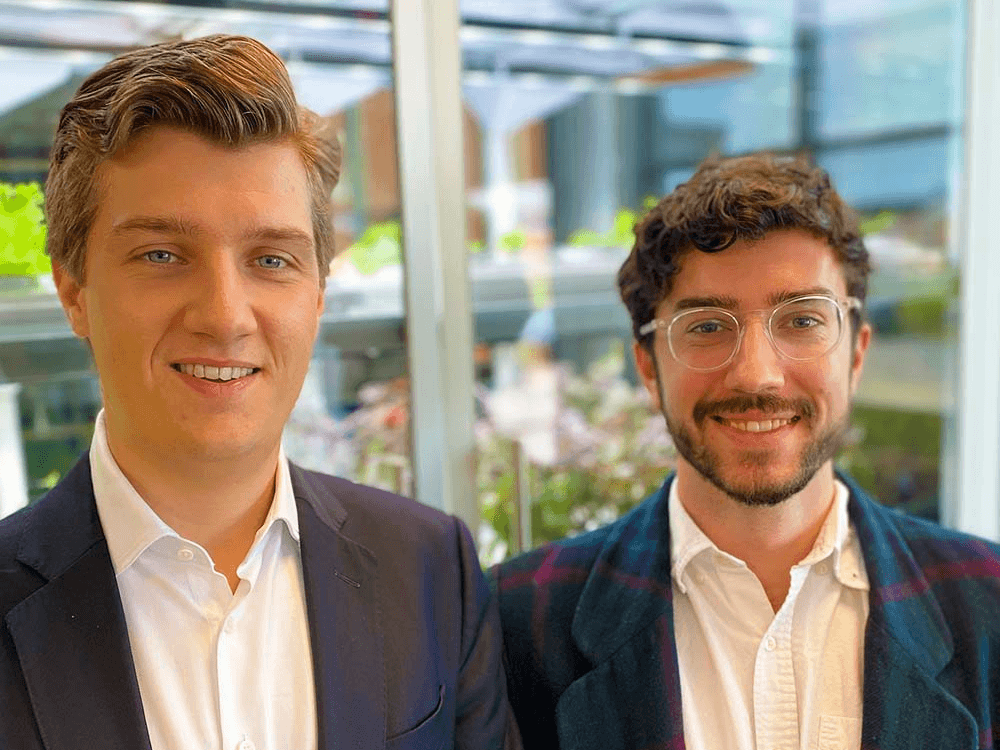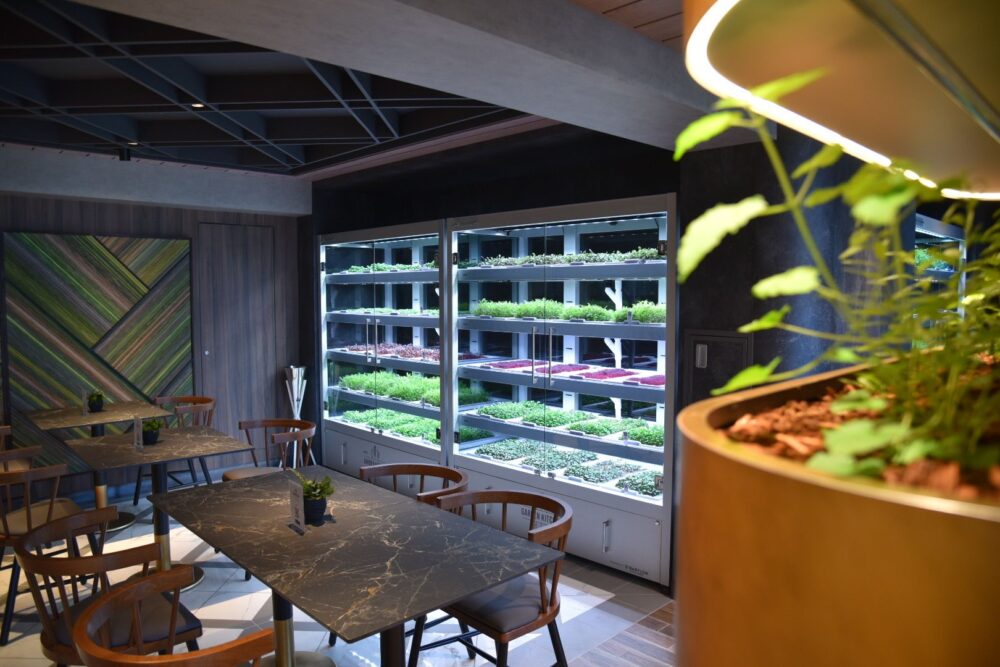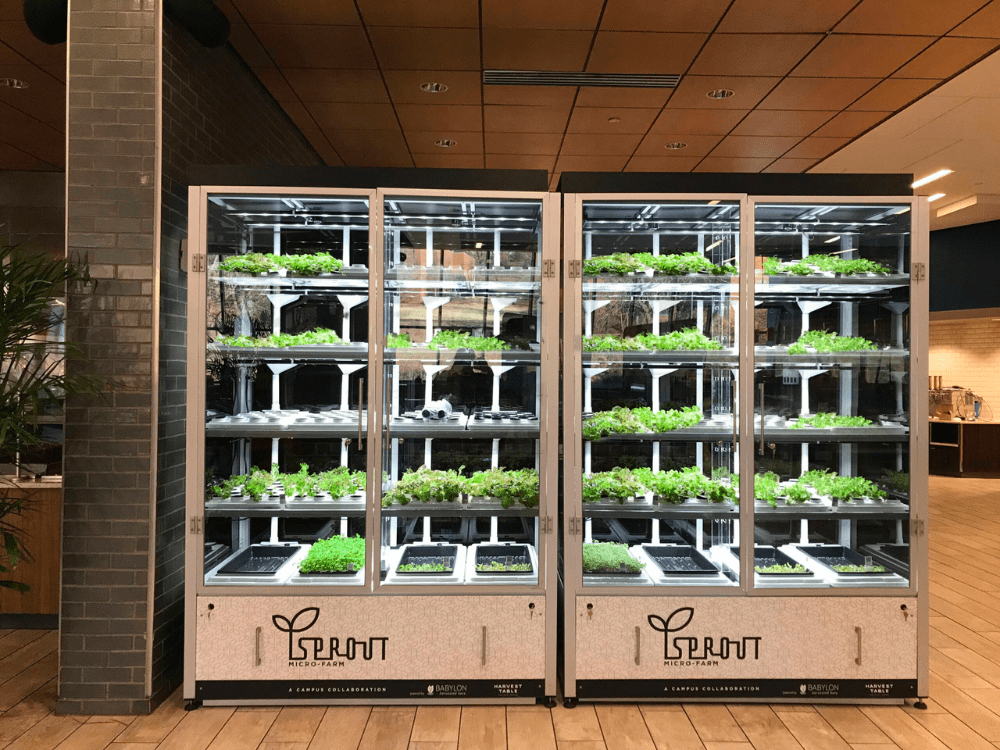- US-based Babylon Micro-Farms has raised $8 million in Series A funding to expand its business providing remotely-managed vertical farming technology.
- Venture South led the round with participation from Virginia Venture Partners, Hull Street Capital, and New Theory Ventures, among others.
- The Richmond, Virginia-based startup has also received a $500,000 grant from the National Science Foundation.
- “This investment gives us the resources we need to execute our growth plans serving a range of businesses and communities across North America,” says the company.

A ‘fundamentally different’ approach to vertical farming
The Series A raise comes in the midst of an ongoing depression and correction for vertical farming, not to mention the larger downturn impacting all of tech.
CEO and co-founder Alexander Olesen tells AFN that managing to close a round at this time is likely due to their approach; Babylon Micro-Farms doesn’t grow and sell its own produce. Rather, it equips other businesses with the technology and strategy to grow food indoors on their own premises.
As others have vocalized in recent months, the need to “choose a side” — technology company or grower — is becoming imperative for vertical farming companies.
Babylon sells its cloud-connected, remotely monitored growing machines to customers like hospitals, cafeterias, and senior living facilities, to name a few. Once Babylon installs the Micro-Farm onsite, customers can run it with the accompanying GuidedGrowing app that advises on growth planning and when to harvest. Olesen says Babylon can also run the farm for a customer if need be.
Babylon unveiled the Galleri Micro-Farm in 2022, which Olesen says takes “just 30 minutes a week to operate” and is easier to install.
To him, however, the company’s standout offering is the remote management element, and not just for the individual grower. Babylon can remotely manage its entire network of farms rather than send humans out each week to check on each deployment.
“We have a lot of features that help grow plants as in any other [indoor farm], but also redundancies and ways to analyze the growing environment and the user interactions with it,” he says.
For example, “cameras in the system can actually map canopy coverage.” The system also includes a tool that allows Babylon to see farms in real-time, manage the “fleet,” and perform predictive maintenance on farms.
150 locations and counting
“We’re in a place of traction and people see that,” says Olesen. “They view that positively in spite of all that stuff was going on.”
Babylon operates Micro-Farms across 40 different states and three countries, totaling “well over 150 locations” across the healthcare, education and corporate dining sectors.
Current clients include IKEA, Neiman Marcus and Sodexo among others. Last year, it became the first vertical farming company in the world to board a cruise ship and operate in that environment, thanks to a partnership with MSC Cruise.
Babylon’s new round of funding will go towards expanding its go-to-market efforts and geographic presence across the US and internationally.
“We anticipate driving a lot of our growth this year with major food service companies, but [also] restaurants, retail, grocery are all in the near future,” says Olesen.

A new standard for indoor systems
Oleson is the first to point out that small, modular indoor farms have gotten “a bad rap” in the past. They are harder to control environmentally than the larger, warehouse-sized facilities and grow much lower volumes of product.
In recent months, however, it’s become glaringly clear that larger farms do not necessarily deliver on their hype.
Olesen hopes that means the industry has reached “a turning point for the smaller, more distributed farms.”
“One of the things that was always heralded about urban vertical farming was the benefit of localization, the education, the engagement. We offer everything from educational curriculum to team-building activities,” he says.
For example: “We’re becoming a beacon of indoor agriculture in senior living. People love it; they come and check on the box every day, and there’s a lot of real value there. I think it’s something no other indoor farming system captures, and that we’ve really doubled down on and is driving a lot of our success,” he adds.
“We’re a tiny, tiny investment for a lot of the companies that we work with. And yet we can completely change the narrative around dining and highlight local and sustainable efforts,” he adds.
As to raising during a downturn, he says Babylon isn’t measured by the same indicators as a large greenhouse or vertical farm. “For instance, energy prices aren’t as big a factor for us because it’s just a very different approach to the industry. Bigger does not necessarily mean better when it comes to vertical farming”





